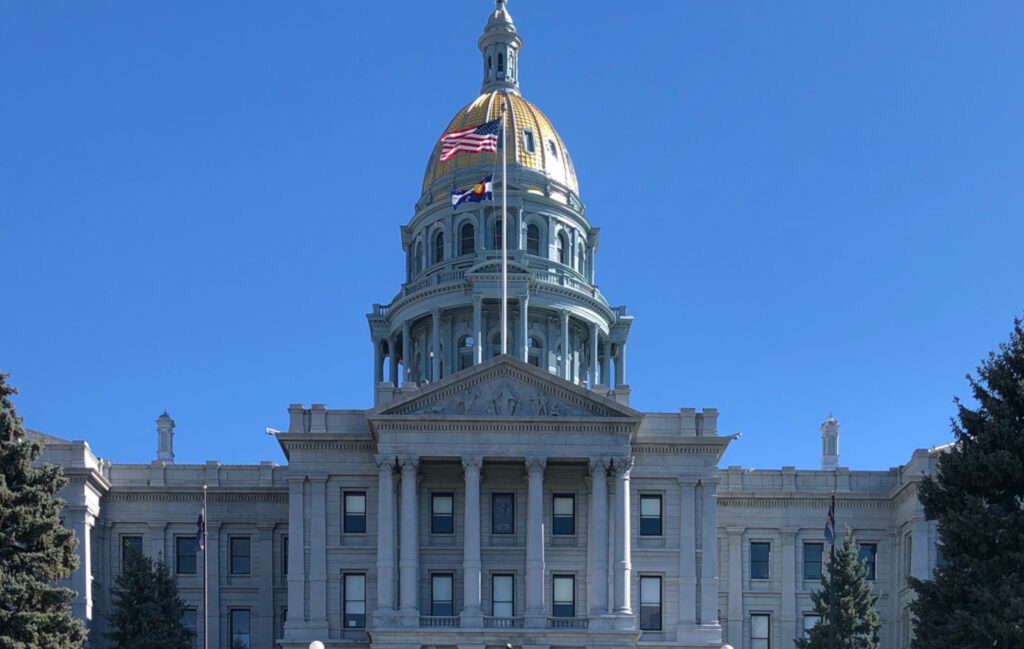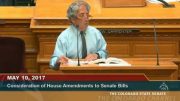Update: Gov. Jared Polis signed SB 24-132 into law on Friday, Apr. 19.
By Jeffrey A. Roberts
CFOIC Executive Director
A bill earning support in the Colorado legislature would greatly expand the number of public school employees whose evaluations are confidential and not subject to disclosure under the Colorado Open Records Act.
While CORA allows for the release of “performance ratings” of public employees, a separate statute says that the evaluation reports of licensed educators and all public records used to prepare those reports are off-limits to the public, except for reports evaluating the chief executive officer of a school district.
Senate Bill 24-132, which passed the Senate last month and the House Education Committee on Wednesday, extends that confidentiality provision to other types of public-school educators who are evaluated, including teachers, principals, administrators, special services providers and education support professionals.

“Evaluations are an important way to understand the effectiveness of our school educators,” said Rep. Barbara McLachlan, D-Durango, a prime House sponsor of the bill. “It’s essential they are taken seriously and kept in the confidential spirit they were intended to be.”
Under the measure, evaluation records would be available only to the person being evaluated, the elected and appointed officials who supervise that person and a hearing officer involved in a dismissal procedure against a teacher.
Supporters of the bill include the Colorado Education Association and the Colorado League of Charter Schools.
“Good working conditions for educators, including the right to privacy, promote student learning and engagement,” Kevin Vick, a high school social studies teacher and CEA’s vice president, testified during Wednesday’s committee hearing. “CEA knows that when our educators feel safe and respected, they can focus on educating our students. All educators deserve to feel this way, regardless of where they teach or their licensure status.”
In testimony before the Senate Education Committee in March, the Colorado Freedom of Information Coalition expressed concerns about extending confidentiality protections to records concerning a wider range of school employees. Some school districts have denied CORA requests for disciplinary records on educators, saying those records may be used to prepare an evaluation report.
In a case before the Colorado Court of Appeals, the Denver School Leaders Association argues that the educator evaluation statute bars the disclosure of “FRISK” summaries requested by Denver Gazette reporter David Migoya. (FRISK is an acronym for guidelines used to document unsatisfactory performance of public-sector employees.)
“It should make no difference whether evaluators have yet used disciplinary records to formulate an evaluation at the time of the CORA request,” says a brief filed by the Denver school administrators’ group. “Predictably, the next evaluator will use such records, and it would frustrate the purposes of the statute to disclose them before an evaluator had the opportunity to use them.”
During the Senate Education Committee hearing, Sen. Rachel Zenzinger, a prime Senate sponsor of SB 24-132, said the bill would not shield the disciplinary records of educators “because a disciplinary record is not the same thing as an evaluation framework. The evaluation framework is not about discipline. It’s about growth. It’s about setting goals,” the Arvada Democrat said.
SB 24-132 now goes to the Senate floor.
Follow the Colorado Freedom of Information Coalition on Twitter @CoFOIC. Like CFOIC’s Facebook page. Do you appreciate the information and resources provided by CFOIC? Please consider making a tax-deductible donation.




